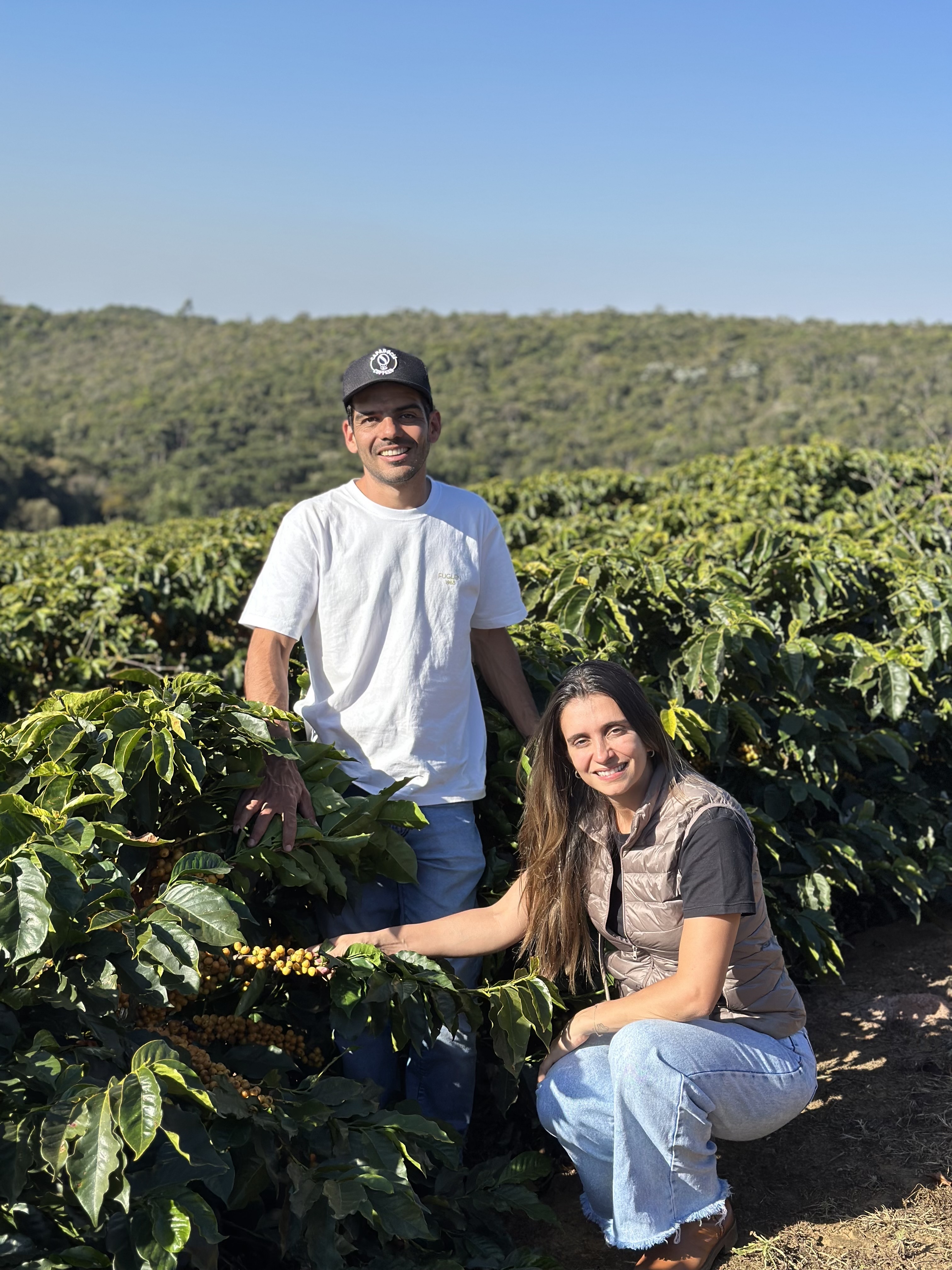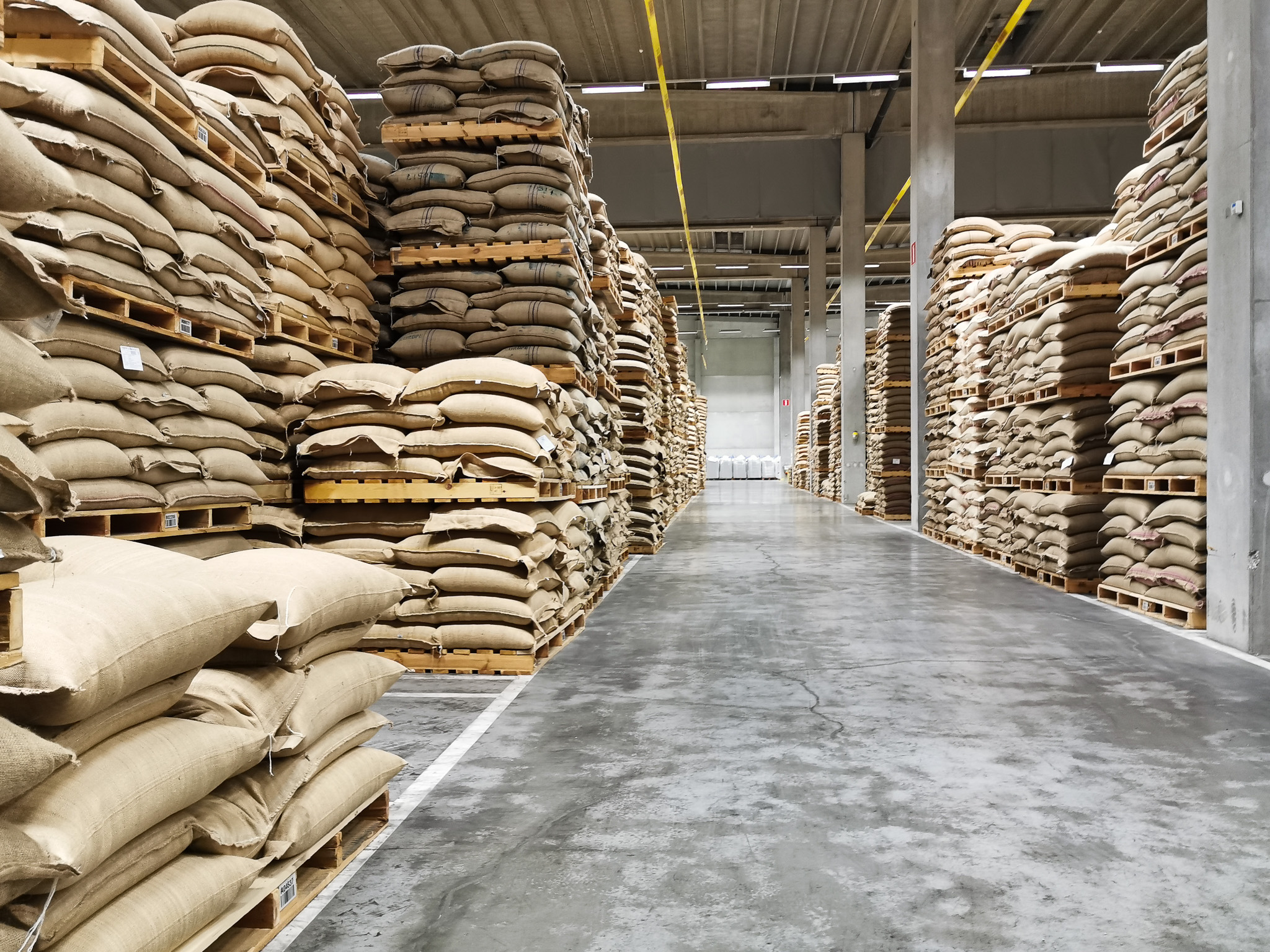Coffee has long been a key contributor to Colombia's agricultural GDP. To grasp how coffee is traded, we need to examine the underlying dynamics—specifically, the flow of money and product throughout the supply chain. In this article, our Colombia-based buyer Juan Suarez, takes us through the key stakeholders of the supply chain, a pricing breakdown, and quality control measurements needed for coffee purchasing.
A closer look at the supply chain
- The Picker
In Colombia, coffee picking is done entirely by hand, with pickers paid based on the volume of cherries they collect each day. During peak season, a picker typically gathers between 200 to 300 kg of cherries daily. In the off-season, they often take on additional tasks like fertilising, pruning, or weeding to supplement their income.
Unfortunately, pickers don't receive pension or health insurance benefits unless they choose to pay for them privately out of their earnings. This is why we pay high premiums to the exporters and cooperatives we work with, so that they can also fairly compensate the pickers they hire on their farms.
- The Farmer
The farmer is responsible for managing or owning a coffee farm. They oversee the cultivation of coffee, monitoring the harvest and peak season to hire additional pickers as needed to ensure all cherries are collected. The farmer also manages the processing of the cherries and decides on the method used. Once processed into dry parchment, the coffee is delivered to an exporter, cooperative, or the National Federation of Coffee Growers (FNC), and farmers are paid in Colombian Pesos (COP) per carga (125 kg) of parchment.
In Colombia, the FNC’s buying mechanisms are designed around washed coffee production. As a result, if a farmer chooses an alternative processing method without a guaranteed buyer, they risk having their coffee classified as “defective,” which would result in a lower price.

- The Purchasing Point
The purchasing point is where farmers can deliver their coffee parchment and receive immediate payment. In Colombia, coffee is typically sold in the form of parchment at these locations.
We generally collaborate with suppliers that operate their own bodegas, purchasing parchment from farmers in our programs. Our selected farmers often deliver small volumes, and coffees meeting target moisture levels, yield factor, and quality are separated and individually cupped. If approved by local cuppers and us, they move forward for purchase.
- The Exporter
The exporter purchases coffee from the purchasing points, which they may also own (sometimes). They receive, evaluate, cup, and grade coffee samples, negotiate prices with producers, and then store the coffee.
The exporter reviews the buyer's specifications, sets the contract terms, and processes the coffee to meet export requirements—as there are specific standards that must be met to export coffee.
Once a contract is secured, exporters manage dry milling, bagging, storage, and transportation to the port, along with all necessary export documentation and tax payments.
At the dry mill, they ensure the coffee meets the required physical characteristics and flavour profile.
- The buyer
The buyer, whether a roaster, coffee shop, or retailer, determines the specific type and quality of coffee needed for their business.
At Nordic Approach, we work closely with exporters to develop quality programs, train producers, and encourage investment in high-quality production, rewarding producers with premium prices.

Pricing in Colombia
The price at each purchasing point is determined by the following formula:
(Excelso Price×Quantity of Excelso)+(Pasilla Price×Pasilla Quantity)
Typically, the prices offered at these points are higher than those provided daily by the FNC.
How is the Excelso Price Calculated?
"Excelso" specifically refers to a preparation based on the dry mill screen size separation outlined in the ICO Size grading manual. However, it is commonly used to describe coffee that is ready for export. Several factors influence the Excelso price:
- C Market: This is the global reference price for Arabica washed coffees.
- ICO Colombian Milds Differential: This variable accounts for the quality, reputation, and availability of Colombian coffee compared to other origins.
- Exchange Rate: Represents the amount of Colombian Pesos paid per US Dollar.
- Coffee Export Tax: Levied by the FNC, this tax is invested in public projects, research, and technical services.
- Logistic and Financial Costs: These include expenses related to purchasing, storing, and exporting the coffee.
- Pounds Content in a Carga with a 94 Yield: 204.7872 lbs.
The Excelso price is calculated using the following formula:
(C Market Price + ICO Colombian Differential - Coffee Export Tax - Logistic and Financial Costs)×(Exchange Rate)×(Excelso Quantity).
Quality Control Parameters
After completing all calculations, it's crucial to understand the control limits and conditions under which prices are set.
Yield Factor
The Yield Factor calculation determines how many kilograms of parchment coffee are needed to produce a 70 kg bag of green beans. To calculate this, purchasing points take a representative sample from each bag in a lot to measure loss, defects, and moisture content. In some specialty coffee programs, coffee may be tasted and priced at a premium based on its quality.
The formula to calculate yield is:
Yield = (Parchment kg × 70 kg) / Green kg
For example:
Yield = (250 grams × 70 kg) / 195.5 grams = 89.5 kg
This means you need 89.5 kg of parchment coffee to produce a 70 kg bag of green coffee.
Moisture & Water Activity
Moisture content is another key factor in coffee purchasing. It affects whether coffee can be exported safely or if additional drying costs are needed. The FNC has set a maximum moisture limit of 12%.
However, we purchase coffees that fall under the following parameters:
- Humidity: 9.5%-11.5%
- Water activity: 0.4-0.58
We implement strict physical quality control measures, particularly because Colombian coffee is prone to ageing quickly. We enforce strict standards for water activity and moisture content to ensure extended shelf life. Additionally, our partners are expected to expedite shipping after finalising purchases, ensuring all our coffees reach their destination as quickly as possible.




.jpg)


